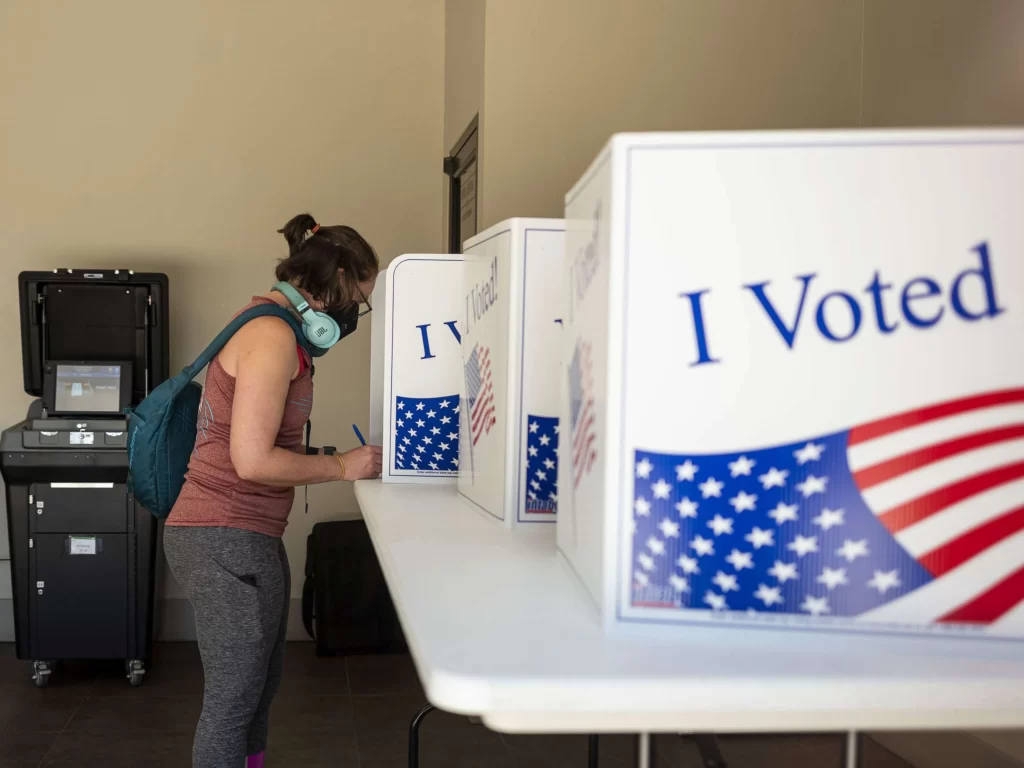With the 2024 election on the horizon, a number of swing states are under close watch by political analysts and campaign strategists. Expected to play a crucial role once again are these battlegrounds, those with changeable voting trends that can affect the outcome of the electoral college.
Over time, states like Florida, Pennsylvania, Michigan, Wisconsin, Arizona and North Carolina have traditionally been among those that matter, and this remains so even in present times as both candidates improve their methods of winning.
The importance of these states is emphasized by the varied voters they have and the thin majorities of the past. It is in these places that those hoping to become presidents must make speeches intended for numerous people including city liberals and country traditionalists.
Analyzing Past Election Results to Predict Future Outcomes
The importance of these states is emphasized by the varied voters they have and the thin majorities of the past. It is in these places that those hoping to become presidents must make speeches intended for numerous people including city liberals and country traditionalists.
While past performance is not always indicative of future results, understanding the nuances of each swing state’s electoral history is important for predicting their behavior in the upcoming election. Such analysis also aids in the allocation of campaign resources, ensuring efforts are concentrated in areas where they can have the greatest effect.
Understanding the Demographic Shifts Influencing Voter Behavior
Demographic shifts, such as changes in age, race, and socioeconomic status, are key factors that can alter the political dynamics within swing states. The increasing diversity of the electorate, the migration patterns of Americans moving between states, and the engagement of younger voters are all contributing to a fluid electoral landscape.
To solidify their traditional base while tailoring strategies and messages which appeal to emerging voter blocs, it is essential that campaigns acknowledge and react to these changes in order to do so. Without the capacity to adjust a politician’s opportunities in key states are seriously threatened by demographic changes at play.
Evaluating the Impact of Local Issues on National Elections
Although national issues often lead news stories, regional issues in swing states may play a similar crucial role. Concerns like employment growth, access to medical care, environmental measures as well as educational chances are usually what voters are mostly concerned with. The way through which these matters are being handled by competitors’ greatly affects the way they are viewed by the electorate.
Candidates must equally weigh their nationwide platforms against specific solutions to unique problems faced by any particular state. Successful campaigns depend on the ability to convince the electorate in those areas the policies they propose will make their lives better.
Strategies Candidates Are Employing to Win Swing States
To win the highly contested swing states, presidential candidates deploy a variety of strategies. These can include ramping up ground operations to engage with voters directly, tailoring advertising campaigns to regional concerns, and deploying key surrogates to rally support. Candidates also frequently visit these states, participating in town halls and community events to build a local presence.
In addition to traditional campaign tactics, candidates are increasingly leveraging data analytics and social media to target specific voter demographics within swing states. By understanding and connecting with voters on a personal level, candidates aim to craft a winning coalition that spans the diverse political spectrum of these key battlegrounds.
Biden made Pennsylvania the first location of his post-State of the Union speech. He called out his opponent and talked about how Trump and “MAGA Republicans are trying to take away our freedoms.” The Biden-Harris campaign also held celebrations in Pennsylvania at the end of March to commemorate the 10th anniversary of President Barack Obama’s signing of the Affordable Care Act into law in 2010.
While on the other hand, In February, Trump traveled to Harrisburg, Pennsylvania, to address a gathering of the National Rifle Association. There, he assured them that “no one will lay a finger on your firearms” should he win the election in the fall. In addition, Trump threatened to “change the name of Pennsylvania” if he didn’t win the presidency, ostensibly alluding to the renaming of historical landmarks and structures. The former president conducted a rally in Schnecksville, Pennsylvania, a few days before his first criminal trial began. During the event, he attacked the trial’s judge and said that Democrats were attempting to prevent him from serving another term in office.
Why Pennsylvania Could Sway the Presidential Election
With its 19 electoral votes and its history of being a major prize in presidential races, Pennsylvania is still a crucial swing state that can decide the outcome of the White House race, as we approach the forthcoming 2024 American presidential race.

The state is a special place for President Joe Biden because of his birth place, having secured victory in Pennsylvania during year 2020 and for having crossed the Electoral College threshold to win the presidency.
Both Biden and his opponent, former President Donald Trump, look at Pennsylvania as a make or mark battleground since its diverse population has the potential of deciding the electoral college; thus, both campaigns giving it priority. When the temperature rises leading to race day, everybody’s gaze will be on Pennsylvania because it is among states that matter most during presidential campaigns.





